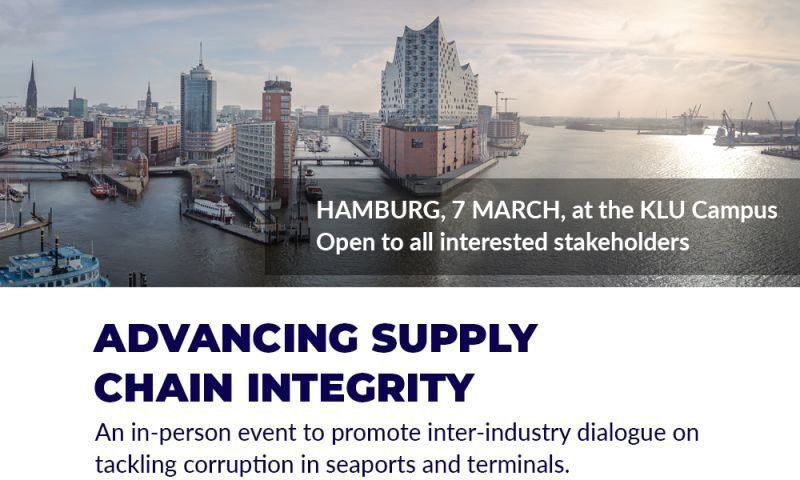The Maritime Anti-Corruption Network, the Center for Shipping and Global Logistics at Kuehne Logistics University, the Facultad de Administracion, Universidad De Los Andes, and the Laboratory of Integrated Port Economy, University of Piraeus are holding an in-person event in Hamburg to promote inter-industry dialogue on tackling corruption in seaports and terminals and discuss how best to advance integrity in maritime supply chains building on work on the Global Port Integrity Platform (GPIP) and the GPIP White Paper – developed by a research team led by PortEconomics members Thanos Pallis and Gordon Wilmsmeier.
The objective of the event is to promote inter-industry dialogue on tackling corruption in seaports and terminals and discuss how best to advance integrity in maritime supply chains. It is organised in a round table discussion around the topic of integrity in the maritime supply chain which will facilitate good practice sharing between public and private sector stakeholders. The event aims to be a stepping stone in improving the business operating environment in the maritime industry through specific activities and wider port sector programs on integrity building, collective action and anti-corruption.
➡️ Please note: The event will take place as an in-person event only on the campus of Kühne Logistics University and will not be streamed online as a livestream.
About
The Maritime Anti-Corruption Network (MACN) is a global business network working towards the vision of a maritime industry free of corruption that enables fair trade to the benefit of society at large. Established in 2011 by a small group of committed maritime companies, MACN has grown to include over 180 companies globally and represents over 50% of the international shipping tonnage. MACN and has become one of the pre-eminent examples of Collective Action to fight corruption in the maritime supply chain.
The Global Port Integrity Platform (GPIP): Since 2011 the Maritime Anti-Corruption Network (ΜΑCN) Anonymous Incident Reporting System has enabled maritime players to submit reports on corrupt demands they face during port calls. In the absence of an international standard or systematic measurement of integrity in port activities, MACN engaged a broad group of stakeholders to build on its anonymous incident data and develop indicators and criteria to capture integrity in ports around the world. This exercise has resulted in developing the first-ever platform measuring integrity efforts and commitments in ports worldwide, the Global Port Integrity Platform (GPIP).
Read the GPIP White paper here: Pallis A., Kladaki P, and Wilmsmeier, G. (2022). Developing a Global Port Integrity Platform.












